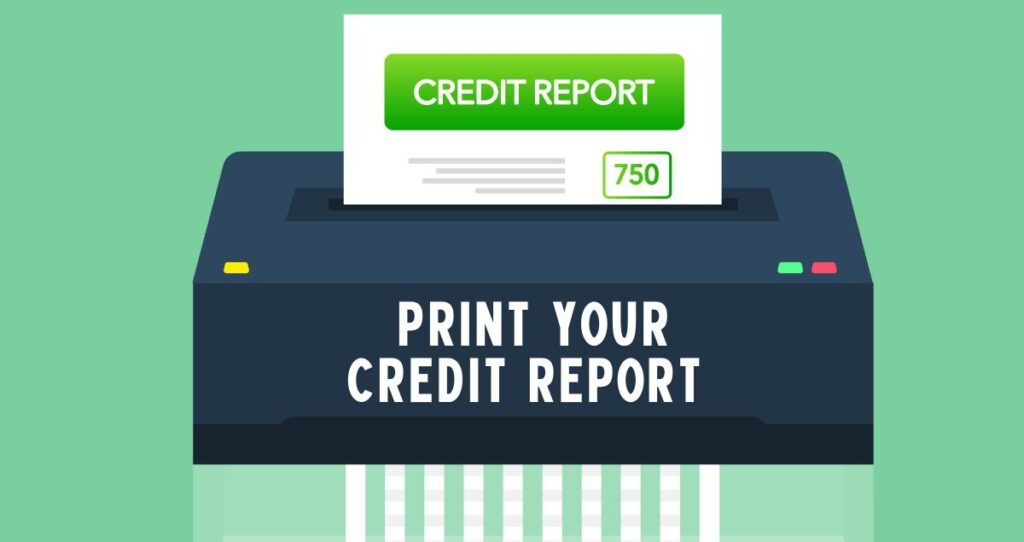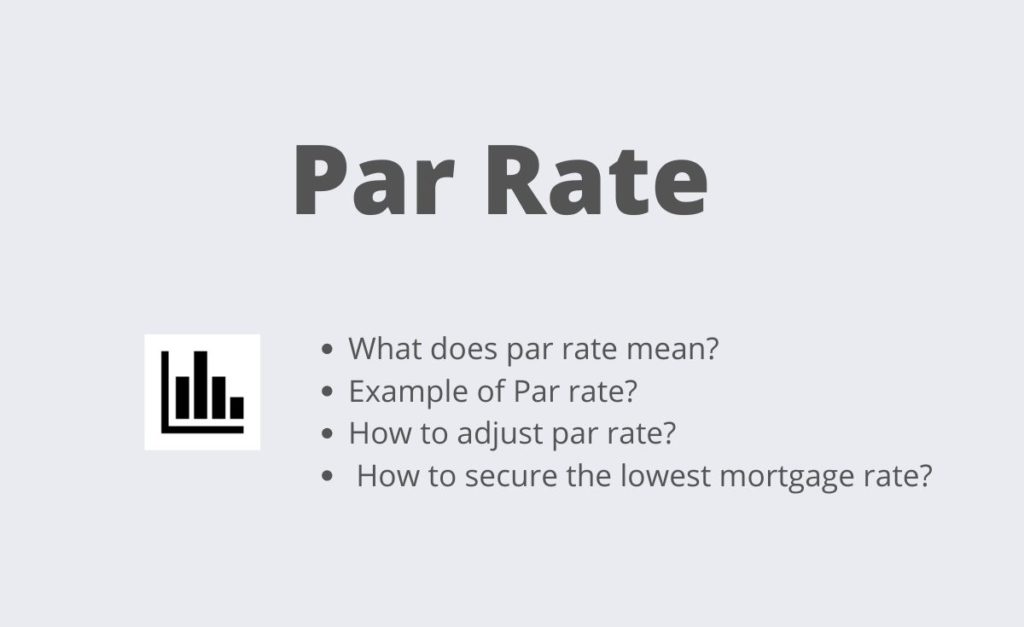A good credit score is essential when applying for credit cards and loans. Not only will your score increase your approval odds, but it will also help you lock in a lower interest rate. If you have a bad credit score, you must improve it before looking for loans. In this article, I will show you clever tips to raise your credit score in 30 days.
Is it possible to raise your credit score in 30 days? The quick answer is Yes. If you are serious about repairing your credit, you can boost your credit score in 30 days. What you need is a functional plan and taking action.
Each person’s credit profile is different. For this reason, the technique you use to raise your credit score in 30 days can vary from one person to another.
No matter how bad your credit score is, you can still boost your credit score in no time. All you have to do is to get started.
What is a credit score?
Your credit score is a numerical expression that summarizes your credit profile. Lenders use it to estimate how risky it is to lend you money. The lower your credit score, the higher the risk associated with lending you money.
For example, if you have a bad credit score, you may have some of the following negative items on your credit report.
- Late payments
- High utilization ratio
- Too many hard inquiries
- Foreclosure/bankruptcies
- You have a low credit age, etc.
Being a risky borrower means you are more likely to default on your credit. That is why lenders heavily use credit scores when assessing loan applications. You will be denied loans and credit cards if you have bad credit.
Conversely, a high credit score indicates that you are a responsible borrower.
Here are the everyday habits of people with an 800 credit score.
- They never miss a payment.
- They don’t have too much debt,
- Consumers with 800 scores avoid taking out loans regularly
- Most of them are financially stable,
- They have budgets and don’t have significant financial setbacks, such as foreclosure, bankruptcy, collection, etc., on your profile.
As a result, many lenders will approve you for their financial products and give you a competitive rate.
The credit score is calculated using information extracted from your credit report. The ranges of credit scores vary based on the scoring model.
Your credit score ranges from 300 to 850, with 300 being the lowest possible score and 850 being the highest score you can get.
Credit score ranges
Although your credit score is between 300 and 850, this range is divided into smaller ranges based on the quality of your credit profile.
The following are ranges of credit scores.

- 300-579: Poor
- 580-669: Fair
- 670-739: Good
- 740-799: Very good
- 800-850: Excellent
If you want to raise your credit score in 30 days or any other time, you should focus on getting into a particular range instead of hitting a specific number. For example, if you have a fair credit score, you might want to move into a higher or Good credit score range. Or, if you have a 700 credit score, you can try to get into the Very Good credit score range.
This is because people in the same range tend to have similar rates. A person with an 815 score must lock in the same interest rate as someone with 850. So, don’t beat yourself up because you don’t have a perfect score.
There are different scoring models. However, the most common models are the FICO Score and VantageScore models. Most lenders use your FICO score. You can check your credit score for free using websites like Credit Karma. But the best place to start is from your credit card issuer. Most card providers give free access to your FICO or Vantage Score.
Credit reporting bureaus compile each credit report and credit score. The USA has three major credit reporting companies: Experian, TransUnion, and Equifax.
One thing to keep in mind moving forward is that people in the same ranges tend to get the same treatment when it comes to interest rates. A person with a 750 credit score will qualify for the same interest rate as someone with a 780 score.
How to Raise Your Credit Score in 30 Days?
You will need an aggressive strategy to raise your credit score in 30 days. There are many ways you can boost your credit score. However, only a handful of these strategies can boost your score in 30 days.
What you are going to learn in this article are strategies explicitly designed to give you a direct effect on your credit score. Why 30 days? This is because your credit score gets updated once every month. Your goal is to complete a particular set of actions that will impact your score BEFORE it is updated for the next month.
The following are four tips to raise your credit score in 30 days.
1. Check your credit score and credit report
Before you embark on a journey to raise your credit score in 30 days, you first need to know your current credit score. You also need to get a copy of your credit report. Why these two are essential in boosting your credit score in 30 days?
- Your credit score: Knowing your credit score will give you an idea of where you stand on the credit score chart and how aggressively you need to approach the matter.
- A copy of your credit report: Credit bureaus compile your credit report and credit score. Your credit report is a detailed document showing where you stand and what affects your credit score. It will show you every item, keeping your score lower.
You can get a free copy of your credit report from each credit reporting bureau once a year. If you want a free credit report, visit the following website: AnnualCreditReport.com or call 1-877-322-8228.
After getting a copy of your credit report, read it line-by-line and ensure you understand what has been reported. Everything in your report should be correct and up to date. Reading your credit report is the first step in raising your credit score in 30 days.
It is like going to the hospital. Your doctor cannot prescribe you medication without knowing what you are suffering from. You can’t fix your credit score without knowing what is affecting it.
2. Clean your credit report
The first phase of boosting your credit score in 30 days is to clean your credit report fast. Once the report is clean, you must move to the next phase.
In summary, every piece of information in your report should be correct. If any of the following information and many more are on your report, you should find a way to have them corrected, removed, paid, or forgiven (when applicable).
- Late payments
- Hard inquiries
- Collections
- Active loans
- Bankruptcies/foreclosures, etc
- Other negative items
- Inaccuracies
- Fraudulent activities
- Errors
- Medical bills
- etc.
Your job right now is to remove as much of this information as possible (when applicable). For example, if a hard inquiry has been on your account for more than 24 months, you should dispute this inquiry. A hard inquiry should automatically fall off your credit report after 2 years.
Take the following actions to clean your credit report.
- Dispute any errors and inaccuracies in your report. A debt mistakenly reported on your credit score will automatically reduce your score. So, get it taken care of.
- If you have collections, pay them off in full. Although the collection will remain on your account for quite some time, some credit bureaus apply less weight to paid collections than active ones. Less weight will result in higher points on your score.
- You can also submit a GoodWill letter to your lender to remove a late payment and promise to pay the remaining balance in full. Your lender is not obligated to comply with your request, but asking does not hurt. Deleting late payments from your credit reports will directly increase your credit score.
Your job in cleaning up your credit report is to correct all errors and inaccuracies and remove as many negative items as possible. You can get a tremendous boost in your credit score just by cleaning your report.
Once your credit report is clean, you will move to the next phase of raising your credit score in 30 days.
More readings
3. Reduce your credit Utilization
The next phase to raise your credit score in 30 days is to reduce your credit utilization. Credit utilization affects your credit score by 30% and is the second-highest factor affecting your credit score.
Each credit card you have comes with its credit limit. Credit utilization for that card represents how much you have spent compared to the available credit. For example, if you have a credit card with $1,000 in credit limit and you use $900 for shopping, your credit usage will be 90%.
What does credit utilization mean?
Higher credit utilization shows you rely on debt to cover your expenses. Hence making you a risky borrower. That is why you must reduce your credit utilization as much as possible to boost your credit score in 30 days.
You will likely have a higher credit utilization if you have a bad credit score. So, by reducing your credit usage, your credit score will automatically go higher for the following month. This is because your credit score is updated every month. So, if you pay off most of your debts and lower your balance, the balance that will be reported to credit bureaus for the next payment period will be lower. This will result in an increased credit score.
Most lenders suggest that you keep your credit limit under 30%. You must do better to boost your credit score in 30 days. You should maintain a 5% or lower credit utilization. This will give you a much higher boost on your credit score.
How do you reduce your credit utilization?
There are two techniques you can use to reduce your credit utilization.
- Pay off your balances: If you have balances on your credit cards, make extra monthly payments and bring your credit usage under 10%.
- Increase your credit limit: By increasing your credit limit, you will automatically reduce your credit utilization. The following are tips you can use to increase your credit limit:
- Request for credit limit increase: If your lender has not increased your credit limit automatically, you can request a higher credit limit. You can quickly complete this process inside your account or by calling your card provider.
- Get a new credit card with a higher limit: If you cannot get higher limits on your current cards, apply for another one with a higher limit.
- Become an authorized user: This will not raise your actual credit limit, but it will give you access to someone’s credit card, and your activities on their accounts will boost your score.
Remember that applying for a credit limit increase or a new credit card will result in a hard inquiry. Each hard inquiry you get on your credit report will knock off about 6 points from your score. The effect of hard inquiries on your score will fade over time.
A hard inquiry does not affect your score after 12 months. But each hard inquiry stays on your report for 2 years. As long as you continue to use your credits responsibly, your score should recover from hard inquiries in a few months.
Related: How long do hard inquiries stay on a credit report?
4. Add your rent and utility payments to your credit report
Another clever way to increase your credit score in 30 days is to have all business dealings reported to credit bureaus.
Your rent payment, utility payments, phone bills, etc., can be reported to credit bureaus. I am assuming that you pay them on time. Otherwise, late payments on these accounts can lower your credit score more once reported. Your game here is to remove as many negative items as possible from your credit report and replace them with good ones. That is how you play and win the game.
The Experian Boost program can instantly increase your credit score. All you have to do is register for the program and submit the last two years of bill payments, including your cell phones, utilities, etc. Once these bills are received, Experian adds them to your credit profile, instantly boosting your credit score. With Experian boost, you can get as many as 10 points. According to Experian, qualifying bills for the Boost program include mobile and landline phones, rent payments, utilities, telecom, insurance, Internet, and video streaming services.
5. Take advantage of the raip rescore
A rapid rescore is a process where a lender or a credit card company updates your credit report to show recent positive changes in your credit activities, such as paying off your debt or lowering your credit utilization, to potentially increase your credit score faster. For example, if you recently paid off a loan, it could take 30 to 45 days before these changes are reflected on your credit reports and used to calculate your credit score.
That means if you get a mortgage, your credit score might not be updated when you sign, resulting in paying a higher interest rate. That is why you can ask the lender for rapid rescore to update your credit reports immediately to reflect these changes and raise your credit score. Equifax says you cannot initiate the rapid rescore to increase your credit score. Instead, a lender or a mortgage broker initiates the rescore process on your behalf.
Read more about rapid rescore and how to use this program when applying for loans.
Things to avoid when raising your credit score in 30 days
You must avoid any activities hindering your progress to raise your credit score in 30 days. Check out the following list of things to avoid to raise your credit score quickly.
- Avoid late payments: Payment history is the highest factor that affects your credit score, and it affects your credit score by 35%. Late payments stay on your credit report for 7 years. If you are trying to boost your credit score in 30 days, make sure you make all your payments before the due date for each active account.
- Do not close a credit account: You should never close an account even if you do not use your credit card. By closing an account, you automatically lower your credit age, affecting your credit score by 15%. Credit age is the average length of time your accounts have been opened. Your credit score improves as your credit age goes higher. Your score will go lower when you close an account. You could also end up creating an imbalance in your credit mix, which is another factor that affects your credit score.
- Avoid excessive borrowing. Earlier, I mentioned that you can increase your credit limit by opening a new credit account or requesting a credit limit increase on your existing accounts. If you choose this route, ensure you qualify for a higher credit limit to avoid getting denied. Remember, you are trying to give up 6 points off your credit score from a hard inquiry in exchange for a lower credit utilization (a higher credit limit will lower your utilization).
Final words
Can you raise your credit score in 30 days? Yes, you can boost your score in as little as 30 days. Here are three important things you can do to improve your credit score in 30 days.
- Clean up your credit report: Remove or correct errors and inaccuracies from your credit report. Then, have all possible negative items removed or paid off from your report (when applicable).
- Reduce your credit utilization to under 10%
- Finally, submit your rent, utility payments, etc., to credit reporting bureaus.
While executing this plan, avoid activities that will reduce your score and hinder your progress, such as late payments and closing accounts.
This plan should help you raise your credit score in 30 days.









